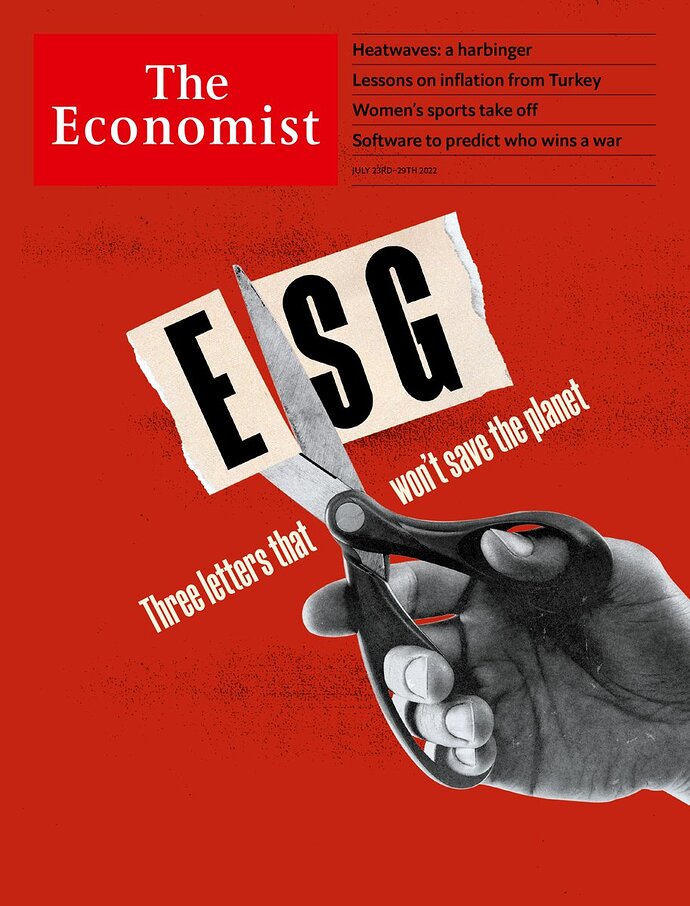This is the cover of the current issue of The Economist (except in the UK).
The Economist announced the article on Twitter with:
https://twitter.com/TheEconomist/status/1550083579941490688
When you’ve lost The Economist, the days of this racket among the establishment may be numbered. Of course, the article, “ESG should be boiled down to one simple measure: emissions” (which is behind a paywall), while pointing out the numerous scams and deception associated with “ESG” (Environmental, Social, and Governance) investing, urges corporate leaders to concentrate on emissions to “…deal with the grave threat posed by climate change”.
Here is a comment on an earlier post about Autodesk’s having adopted an 83 page ESG “Autodesk FY22 Impact Report” [PDF].
